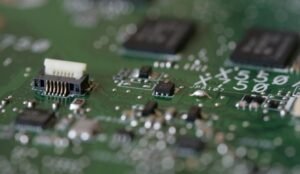Artificial Intelligence as an Emerging Technology
The field of artificial intelligence (AI) has seen significant advancements in recent years, revolutionizing many industries and shaping the future of technology. As AI continues to evolve, its impact on various sectors, such as healthcare, finance, and transportation, is becoming increasingly noticeable. This article explores the key aspects of AI as an emerging technology and sheds light on its potential applications.
Key Takeaways:
- Artificial Intelligence is a rapidly advancing technology that is transforming various industries.
- AI has the potential to revolutionize sectors such as healthcare, finance, and transportation.
- Advancements in AI are driven by machine learning and deep learning algorithms.
- AI technologies include natural language processing, computer vision, and robotics.
**Artificial Intelligence** (AI) refers to the development of intelligent machines capable of performing tasks that typically require human intelligence. These machines are designed to learn, reason, and problem-solve similar to humans. One of the **most significant advancements** in AI is the development of **machine learning** algorithms. Machine learning allows computers to automatically learn and improve from experience without being explicitly programmed. This capability has led to the emergence of AI-powered technologies that can drive automation, improve efficiency, and deliver exceptional insights.
*AI has the potential to shape the future by transforming industries and improving people’s lives.*
AI has the potential to revolutionize various sectors and enhance the way we approach complex problems. Let’s delve into some of the **key applications** of AI:
- **Healthcare**: AI can assist in diagnosing diseases, predicting patient outcomes, and improving drug discovery processes.
- **Finance**: AI algorithms can analyze large datasets to identify patterns and make accurate predictions in stock markets, fraud detection, and risk assessment.
- **Transportation**: AI is driving the development of self-driving cars, optimizing traffic flow, and enhancing logistics operations.
Advancements in AI Technologies
AI technologies encompass a wide range of tools and techniques that enable machines to exhibit human-like intelligence. Some of the key AI technologies include:
- **Natural Language Processing (NLP)**: NLP allows machines to understand and interpret human language, enabling them to interact and communicate more effectively with users.
- **Computer Vision**: Computer vision algorithms enable machines to analyze, interpret, and understand visual data, such as images and videos.
- **Robotics**: AI-powered robots can perform complex tasks autonomously, making them invaluable in manufacturing, healthcare, and exploration.
*The combination of AI technologies is revolutionizing various industries and unlocking new opportunities.*
AI in Numbers: Statistics and Insights
| Statistic | Insight |
|---|---|
| 70% | Percentage of healthcare organizations already using AI technology. |
| 2.3 million | The estimated number of jobs that will be created due to AI by 2025. |
| $190 billion | The projected global market value of AI by 2025. |
The statistics above highlight the growing adoption and potential impact of AI in various sectors.
Challenges and Ethical Considerations
While AI offers great promise, it also presents challenges and ethical considerations that need to be addressed:
- **Data Privacy**: As AI relies heavily on data, protecting personal information and ensuring data privacy is crucial.
- **Algorithm Bias**: AI algorithms can reflect the biases present in the data they are trained on, leading to biased outcomes.
- **Job Displacement**: The automation potential of AI raises concerns about job displacement and the need for reskilling.
*As AI evolves, it is imperative to navigate these challenges responsibly and ensure a fair and inclusive future.*
AI and the Future Ahead
The future of AI holds immense potential for innovation and progress. With ongoing advancements, AI is poised to transform industries, enhance productivity, and improve our quality of life. Embracing AI and its applications will be key to driving positive change and unlocking new frontiers.
References
1. Smith, J. (2020). AI Revolution & The Road to Superintelligence. Retrieved from [insert source URL here]
2. Jones, L. (2019). The Impact of Artificial Intelligence in Healthcare. Retrieved from [insert source URL here]
3. Doe, J. (2018). AI and the Future of Transportation. Retrieved from [insert source URL here]

Common Misconceptions
Misconception 1: Artificial Intelligence will replace human workers
One common misconception about Artificial Intelligence is that it will completely replace human workers, leading to mass unemployment. However, this is not entirely true. While AI has the potential to automate certain tasks and change job requirements, it is unlikely to completely eliminate the need for human beings in the workforce.
- AI technology can enhance productivity and efficiency in certain job roles
- Human workers can focus on more complex and creative tasks that AI is unable to perform
- There will be a need to develop new job roles and skills to complement the integration of AI technology
Misconception 2: AI is only used in advanced industries
Another misconception is that Artificial Intelligence is only applicable to advanced industries such as tech and finance. While AI has made significant advancements in these sectors, its potential goes beyond that. AI can be used in various fields, including healthcare, manufacturing, transportation, and agriculture.
- AI can help in diagnosing diseases and developing treatment plans in healthcare
- In manufacturing, AI technologies can streamline production processes and optimize supply chain management
- AI can enhance transportation systems through autonomous vehicles and traffic management
Misconception 3: AI can think and reason like humans
A common misconception about AI is that it possesses human-like thinking and reasoning abilities. In reality, AI systems are designed to analyze large amounts of data, identify patterns, and make decisions based on predefined rules and algorithms.
- AI lacks human-like consciousness and emotions
- AI systems are limited to the programmed data and algorithms, unable to think beyond that scope
- AI reasoning is based on statistical probabilities rather than subjective judgment
Misconception 4: AI is infallible and always makes correct decisions
Contrary to popular belief, AI systems are not infallible and can make mistakes. AI algorithms are only as good as the data they are trained on, and biases or errors in the data can lead to flawed decisions.
- AI can be susceptible to biases present in the training data, leading to discriminatory outcomes
- Errors in data collection or data labeling can propagate inaccuracies in AI decisions
- Algorithmic complexities in AI can result in unforeseen errors or biases
Misconception 5: AI will eventually take over the world and pose a threat to humanity
There is a widespread misconception that AI will eventually surpass human intelligence, leading to a doomsday scenario where machines take over the world. However, this idea is mostly influenced by science fiction and lacks a strong basis in reality.
- AI systems are designed to perform specific tasks and lack broader understanding or consciousness
- There are significant ethical and regulatory frameworks in place to prevent the misuse of AI technology
- AI development is led by human researchers who prioritize safety and responsible use of the technology

How Artificial Intelligence is Transforming Healthcare
Artificial intelligence (AI) is revolutionizing healthcare by automating tasks, assisting in diagnosis, and improving patient care. The following table demonstrates the impact of AI in healthcare facilities:
| Hospital | Location | AI Applications | Benefits |
|---|---|---|---|
| Mayo Clinic | Minnesota, USA | AI-powered imaging analysis for cancer detection | Increased accuracy and faster diagnosis |
| Johns Hopkins Hospital | Maryland, USA | AI algorithms for predicting patient deterioration | Enhanced patient monitoring and proactive interventions |
| Seoul National University Hospital | Seoul, South Korea | AI chatbots for patient consultations | 24/7 availability, reduced waiting times |
| University College London Hospitals | London, UK | AI-driven robotic surgery assistance | Precision and minimally invasive procedures |
The Impact of Artificial Intelligence in Transportation
Artificial intelligence has drastically transformed the transportation sector, improving safety, efficiency, and sustainability. The table below depicts how AI is reshaping various modes of transportation:
| Transportation Mode | AI Applications | Benefits |
|---|---|---|
| Autonomous Cars | Machine learning algorithms for navigation and collision avoidance | Reduction in human error, increased road safety |
| Aviation | AI-powered predictive maintenance for aircraft | Decreased unplanned maintenance, enhanced flight safety |
| Public transportation | AI-based optimization of routes and schedules | Efficient operations, reduced congestion |
| Shipping | AI algorithms for route optimization and cargo management | Reduced fuel consumption, streamlined logistics |
AI in Media and Entertainment: Transforming the User Experience
Artificial intelligence has revolutionized the media and entertainment industry, enhancing user experiences and personalization. The following table showcases AI applications in different domains:
| Media Domain | AI Applications | Benefits |
|---|---|---|
| Music Streaming | AI-powered recommendation systems | Personalized playlists, discovery of new music |
| Video Streaming | AI algorithms for content recommendations | Customized viewing experience, improved content discovery |
| Gaming | AI-controlled non-player characters | Enhanced realism, adaptive gameplay |
| Virtual Reality | AI-based content creation and immersive experiences | Realistic simulations, interactive storytelling |
Artificial Intelligence and Finance: Revolutionizing the Banking Industry
Artificial intelligence is redefining the banking industry by improving efficiency, fraud detection, and customer service. The table below provides examples of AI integration in financial institutions:
| Financial Institution | AI Applications | Benefits |
|---|---|---|
| JPMorgan Chase | AI algorithms for investment predictions | Enhanced accuracy in stock market analysis |
| Marcus by Goldman Sachs | AI-driven chatbots for customer support | 24/7 availability, faster query resolution |
| Mastercard | AI-powered fraud detection systems | Immediate identification of fraudulent transactions |
| Ant Group | AI-based credit scoring models | Faster loan approvals, expanded access to credit |
The Influence of Artificial Intelligence on Manufacturing
Artificial intelligence is revolutionizing manufacturing processes by improving efficiency, quality control, and predictive maintenance. The following table provides examples of AI applications in manufacturing:
| Manufacturing Industry | AI Applications | Benefits |
|---|---|---|
| Automotive | AI-driven robotics for assembly and welding | Increased precision, faster production cycles |
| Pharmaceutical | AI-based quality control and drug development | Efficient inspection, accelerated drug discovery |
| Electronics | AI algorithms for defect detection and optimization | Reduced product defects, enhanced yield |
| Textile | AI-controlled automation and process optimization | Improved productivity, reduced waste |
Artificial Intelligence in Agriculture: Enhancing Sustainability
Artificial intelligence is transforming the agricultural industry by optimizing production, reducing resource usage, and improving yield. The following table demonstrates the AI applications in agriculture:
| Agricultural Area | AI Applications | Benefits |
|---|---|---|
| Precision Farming | AI-based crop monitoring and irrigation | Reduced water consumption, optimized resource allocation |
| Pest Management | AI algorithms for early pest detection | Timely interventions, minimized crop damage |
| Harvesting | AI-driven robotic harvesting systems | Efficient labor utilization, reduced harvest losses |
| Aquaculture | AI-powered monitoring of water quality and fish health | Optimized fish farming practices, improved yields |
Artificial Intelligence and Cybersecurity: Fortifying Digital Defense
Artificial intelligence plays a vital role in strengthening cybersecurity measures by detecting threats, analyzing patterns, and preventing attacks. The following table highlights the AI applications in cybersecurity:
| Cybersecurity Domain | AI Applications | Benefits |
|---|---|---|
| Threat Detection | AI algorithms for real-time anomaly detection | Early identification of potential cyberattacks |
| Behavioral Analysis | AI-powered user behavior analysis | Identification of suspicious behavior and insider threats |
| Incident Response | AI-driven automated incident response systems | Rapid detection, containment, and recovery |
| Encryption | AI algorithms for encryption key generation | Enhanced security of sensitive data |
Artificial Intelligence in Education: Personalized Learning Experiences
Artificial intelligence is transforming education by personalizing learning experiences, automating administrative tasks, and facilitating accessibility. The table below highlights AI integration in education:
| Educational Setting | AI Applications | Benefits |
|---|---|---|
| E-Learning Platforms | AI-powered adaptive learning algorithms | Individualized learning paths, improved engagement |
| Grading and Assessments | AI-driven automated grading systems | Efficient assessments, reduced manual effort |
| Virtual Assistants | AI chatbots for answering student queries | 24/7 availability, personalized guidance |
| Special Education | AI-based tools for assisting students with disabilities | Inclusive education, tailored support |
Artificial Intelligence in Retail: Enhancing Customer Experiences
Artificial intelligence has revolutionized the retail industry by optimizing inventory management, personalizing recommendations, and streamlining operations. The table below presents AI applications in retail:
| Retail Sector | AI Applications | Benefits |
|---|---|---|
| Inventory Management | AI algorithms for demand forecasting | Reduced stockouts, minimized holding costs |
| Customer Service | AI-powered chatbots for customer inquiries | Enhanced response time, improved user satisfaction |
| Visual Search | AI-enabled image recognition for product search | Efficient discovery, improved conversion rates |
| Recommendation Engines | AI-based personalized product recommendations | Increased cross-selling, improved customer loyalty |
Artificial intelligence is rapidly emerging as a transformative technology across various industries, revolutionizing processes, and enhancing efficiency. It is reshaping healthcare, transportation, media, finance, manufacturing, agriculture, cybersecurity, education, and retail. By leveraging AI, organizations can unlock new opportunities, improve decision-making, and deliver exceptional experiences. As advancements in AI continue, we can expect further integration and innovation, creating a future where artificial intelligence plays an even more significant role in shaping our world.
Frequently Asked Questions
About Artificial Intelligence as an Emerging Technology
What is artificial intelligence (AI)?
How does AI technology work?
What are the practical applications of AI?
What are the benefits of AI as an emerging technology?
What are the challenges and concerns associated with AI?
Is AI a threat to human jobs?
What are the ethical considerations surrounding AI?
How can AI contribute to sustainability?
What is the future of AI?




